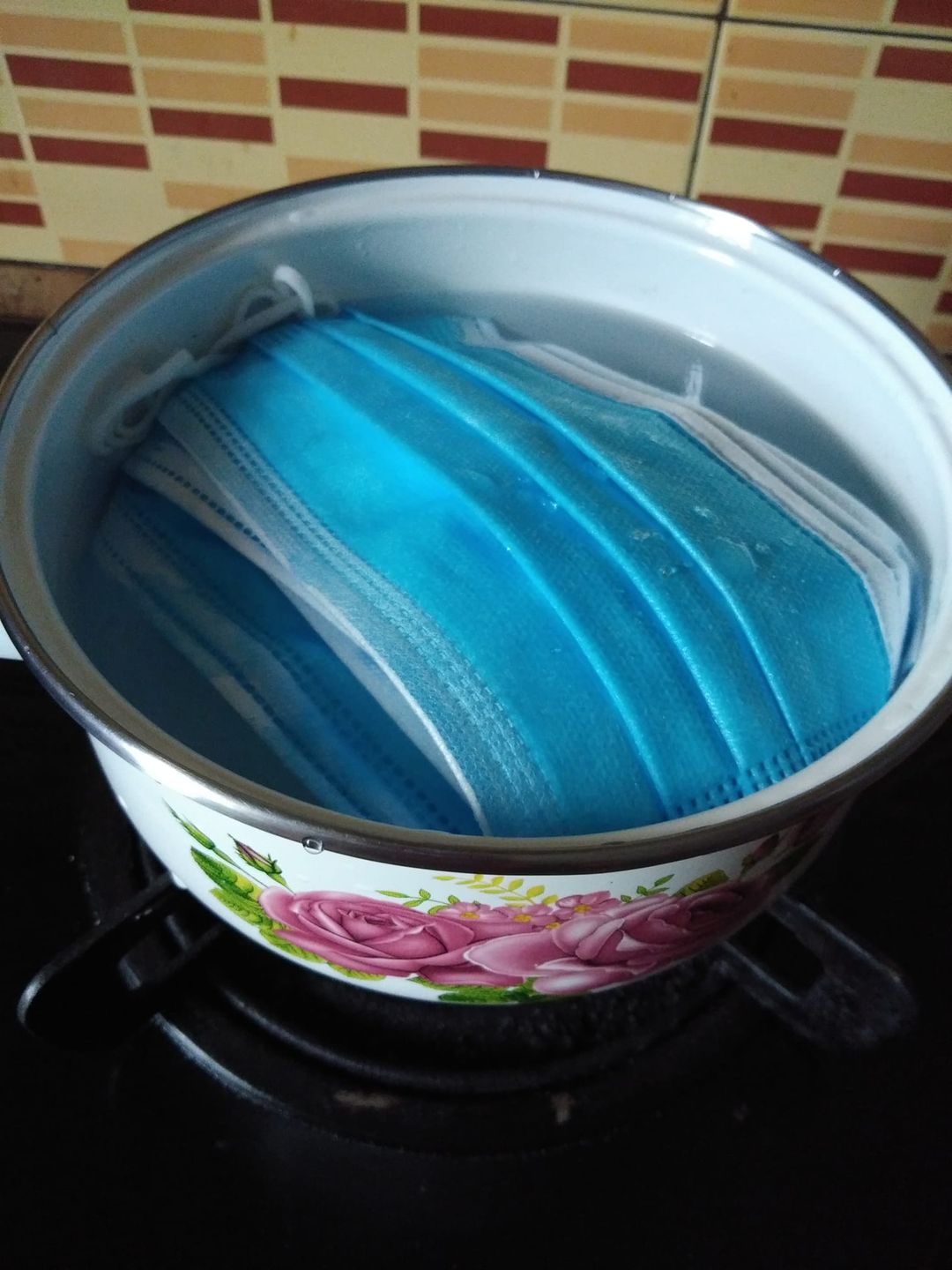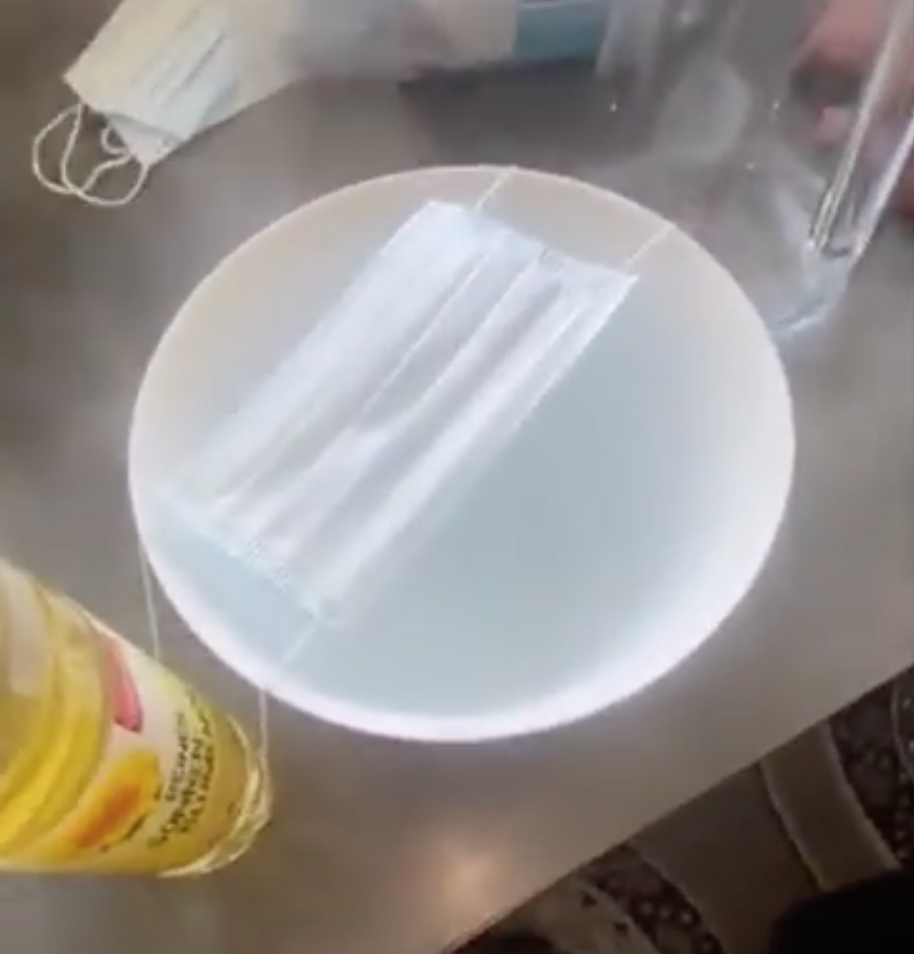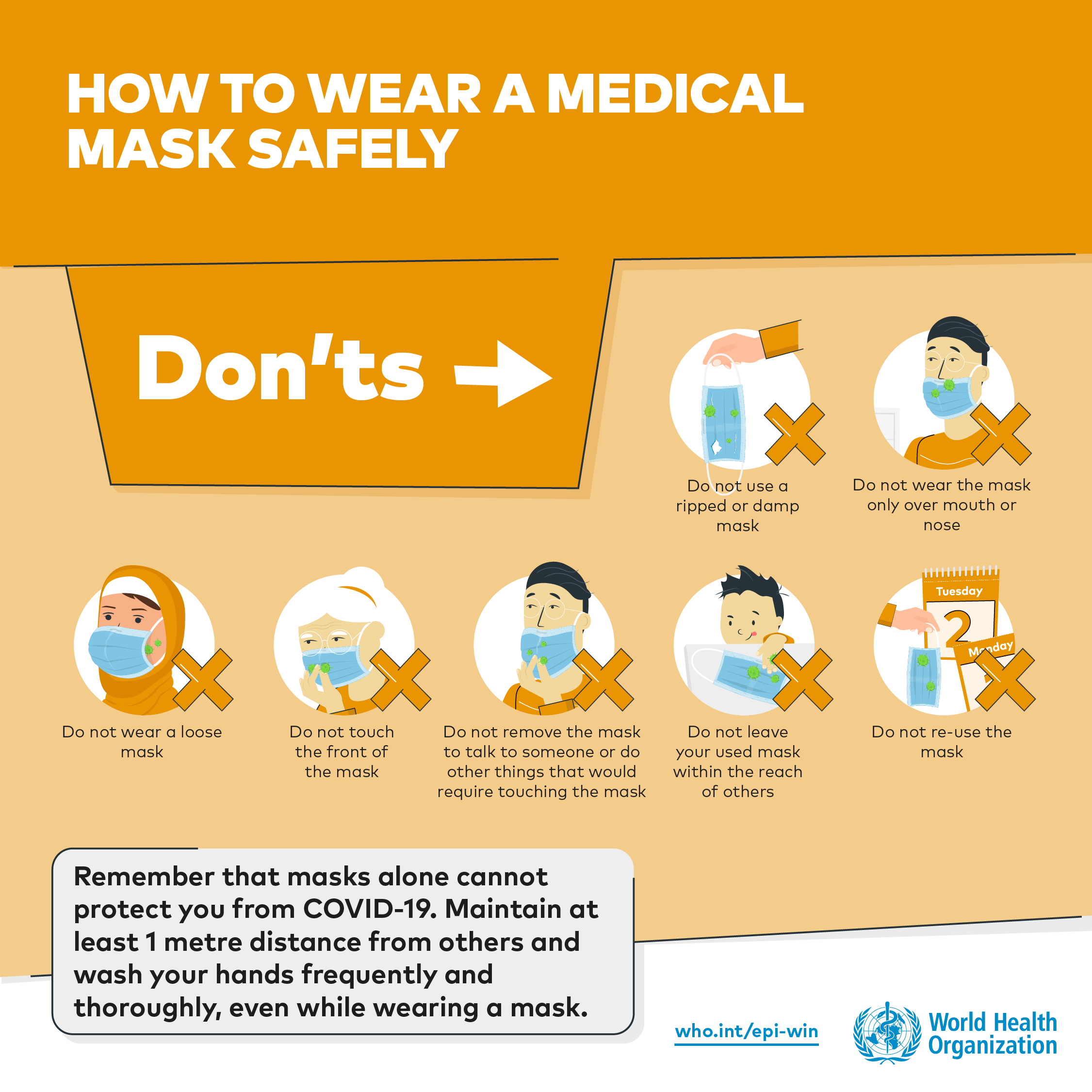Woman boils medical face masks before use
COVID-19 has made many of us sticklers for cleanliness. Despite hygiene practices laid out by reputable sources online to help us navigate the pandemic, some continue to utilise outlandish sanitising methods that aren’t verified by legitimate sources such as the Kementerian Kesihatan Malaysia (KKM) or World Health Organisation (WHO).
Once such practice is the boiling of medical face masks before usage. A Malaysian woman shared how she did just that to kill off supposed “worms” in face masks, after claims of such “worms” showing up in masks surfaced in Turkey and China, with videos from individuals that allegedly prove it.
We attempt to fact-check the process of them being steamed over boiling water, to learn how it’s important to source our tips from verified sources to minimise causing unnecessary alarm.
Alleged hack that boils away “worms” in face masks
In a post dated 8th April 2021, a netizen shared what she had done to ‘sanitise’ her face masks – not unlike the ones we wear daily – via Facebook group Masak Apa Tak Jadi Hari Ni Official.
Rewashing and reusing fabric face masks may be a norm, but this netizen apparently applied the same principle to disposable surgical masks as well.

Image credit: Facebook
She claims to have come across viral online claims of “worms” hiding out in disposable face masks, and had been wary of wearing them ever since. To beat the odds of having “worms” in these items that we now have to regularly wear, she decided to boil the disposable face masks before use.
Viral claims about creepy crawlies rampant online
Her post has garnered over 1,000 shares and 17,000 reactions at the time of writing, with many befuddled over the sight. Some joked that she should be adding Ajinomoto – the famous MSG brand – for taste with how she was “cooking” her face masks.
But other people also shared how we should be more sceptical of online claims even though they may have achieved virality.
A netizen shared the alleged viral video in question in the comment’s section of the post, which allegedly showed “worms” moving around in face masks after getting steamed by unnamed sources.

Image credit: Facebook
We did a quick look on YouTube and saw a similar viral video with over 60,000 views. This YouTuber claims to have found “synthetic” parasites that show up and “move” between the layers of a face mask when warm air is blown on them – similar to a scenario that would happen if we were to wear them against our mouths.
However, evidence shown in the video is probably based on personal speculations.
Another YouTuber, a Biology teacher who holds a degree in Microbiology and Molecular Biology, came out to debunk the rumor of allegedly microscopic worms in face masks on his channel Microbehunter.
In the video, he held that these “worms” are actually textile fibres from cloth in face masks that appear to move or contract,when wet, with darker spots that show up in face masks when viewed under a microscope simply the dust that accumulates when the masks are left out in the open.
Boiling not recommended, and worms may just be cloth fibres
Even if the Facebook post wasn’t to be taken seriously, boiling face masks is currently not recommended by health experts. In a face mask advisory available on WHO’s website, we should only rewash and reuse non-medical fabric face masks.

Image credit: WHO
Reusing disposable masks is also advised against. More importantly, we must avoid wearing ripped or damp medical and non-medical masks.
Woman boils face masks to rid it of worms not scientifically proven
Previous viral claims about a “doctor” advising others to boil their medical face masks at 100 degrees Celsius for 10 minutes to be reused have been debunked by several health experts, as reported by AFP Hong Kong.
We reckon that the same thing applies here, as boiling face masks can reduce the effectiveness of filters in the mask that helps keep us safe from COVID-19.
Likewise, there are no scientifically proven claims of “worms” in face masks, which may just be cloth fibres present in them. Until credible sources can be cited for them, we are reminded to stay vigilant of facts and news surrounding the virus.
Read more news:
- Fake news stories on COVID-19 debunked
- Siblings in Penang pick up irresponsibly discarded face masks
- Army personnel helps OKU makcik put on face mask and gloves
Cover image adapted from: Facebook and YouTube / Microbehunter

Drop us your email so you won't miss the latest news.






